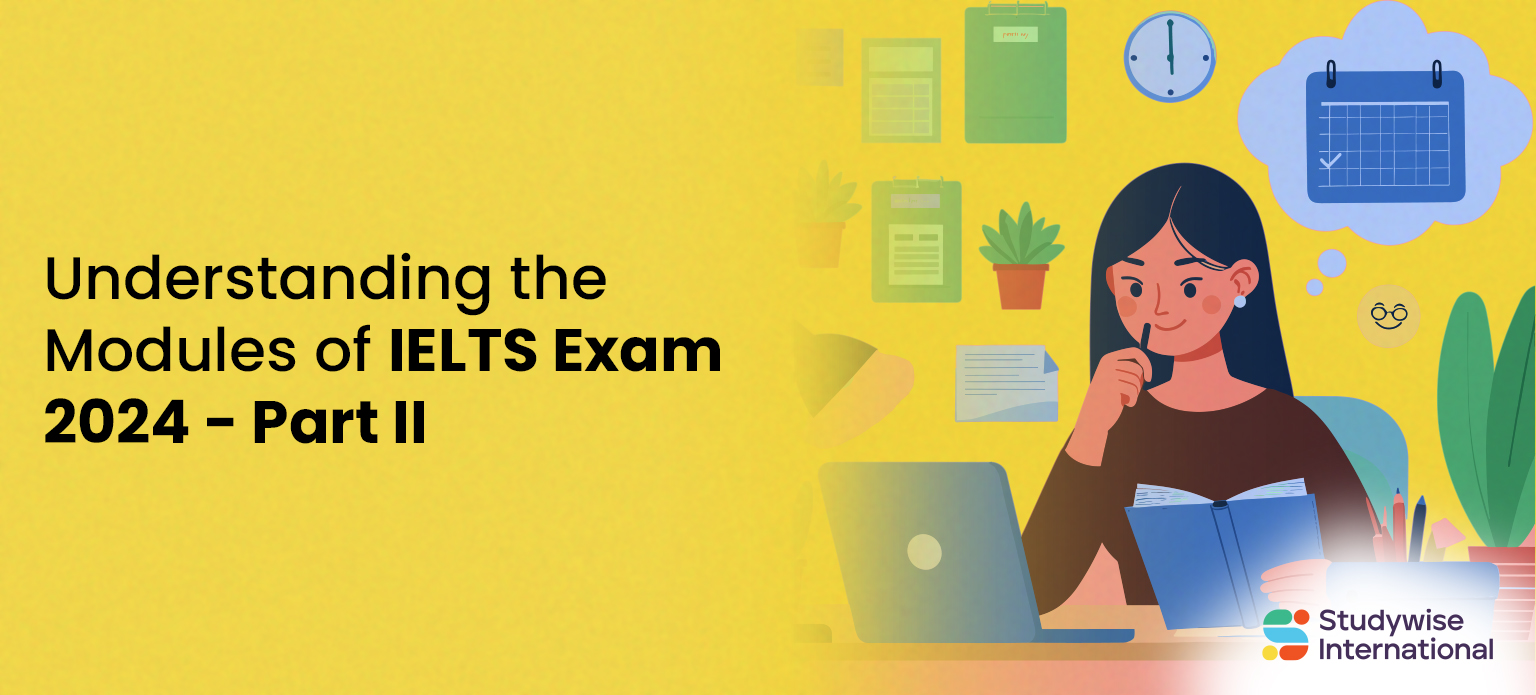
Understanding the Modules of IELTS Exam 2024 – Part II
- Categories Abroad Test Preparation, All Study in Abroad Blogs, IELTS
- Date May 29, 2024
In Part I of the blog, we discussed the syllabus, format and modules of the IELTS test 2024. The blog carried itself dictating the syllabus of the Listening and Reading sections. Each section involved the scoring, format, question types and tips on how to score better on them. In this blog, we will address the same in the Writing and Speaking Sections.
Writing Section
The Writing Section has two tasks. Both of them are non-optional and should be completed to move ahead with the Exam. The work will present 4 major assessment criteria – completion, coherence and cohesion, lexical resources and grammar range and accuracy. If the essay is incomplete or insufficient as per the word count, the latter criteria consequently stand null. Candidates must stick to their opinions and write with compassion, logic and sensibility To gain more points, they must avoid writing with notes and bulletins or using repetitive words. This is where your obsessive vocabulary lessons will pay off. While writing the essay, try to save time to evaluate your work.
Task 1 could either have a Graph, Table, Chart or Diagram to describe with a minimum of 150 words. As the latter part carries more weightage on both word count and scoring, the quicker they finish it, the better. However, they can take up to 20 minutes to perform Task 1. The 2nd Task requires the candidates to Share Opinions, Arguments or Support on the presented topic. They get about 40 minutes to complete Task 2 in 250 words or more. The essay must be structured in an academic style of writing and comprise a compelling introduction, clear and precise paragraphs and a strong conclusion. Along each paragraph, candidates must organise their thoughts well with consistency in paraphrasing, relevance and actual facts and figures to strengthen their pieces.
Read more: IELTS Writing Task 2 Essay: Topics, Tips and More
Task 1 only carries 33% of the total score band. This means that if you managed to score 6/10 in Task 1 and 7/10 in Task 2, your total score will be 6.5. But if you got 7.5 in the second task, your score could significantly rise to 7.0.
Speaking Section
Regardless of the mode of the exam, the Speaking section involves an Interview with the examiner. Students who have opted for a computer-based exam take up this part right after the previous ones. On the other hand, those appearing on paper can either take it the same day or up to 7 days either before or after the test date. It explicitly depends on the local arrangements at the exam centre. Despite the day, location and mode, the duration of the Speaking section of the IELTS exam is 11 to 14 minutes. This 3 part test is recorded live and tests the speaking ability of the candidate.
The parameters for scoring are more or less the same as in the Writing section. Candidates can significantly improve their score by practising in their routine conversation, putting them in real-life situations and understanding accents. They must maintain a normal speed, good pitch and confidence in order for the examiner to understand them loud and clear. The section starts off easy with a 4-5 long introduction. The examiner will ask questions on topics the candidate feels comfortable with like home, hobbies, goals and others. It is the later parts that, well, stink.
In part 2, candidates get a Task Card mentioning a topic. It also has pointers to include in the speech along with other instructions. The candidate gets one minute to prepare and structure their talk. After 2 minutes of listening, the examiner will present a few follow-up questions. Going ahead, the 3rd part, lastly, is a Discussion. The candidate has a general but abstract discussion with the examiner on the shared topic. They must use this piece to analyse the examiner’s thoughts and present their own. There should be an encouraged share of ideas between them.
Ready to Ace the Test?
Studywise International offers competitive IELTS coaching to students aspiring to study abroad. Candidates appearing for IELTS can seek guidance from our professionals in every step of the way. From filling out the exam form to understanding the syllabus to compiling resources. Our IELTS coaching aims to provide customised guidance that reflects on the goals and requirements of you and your chosen university(s).
Take a step towards your dreams today. Join us for a FREE DEMO class.
You may also like

Ireland Intake 2024-25: Universities & Preparation Timeline

TOEFL Scoring System and Validity


